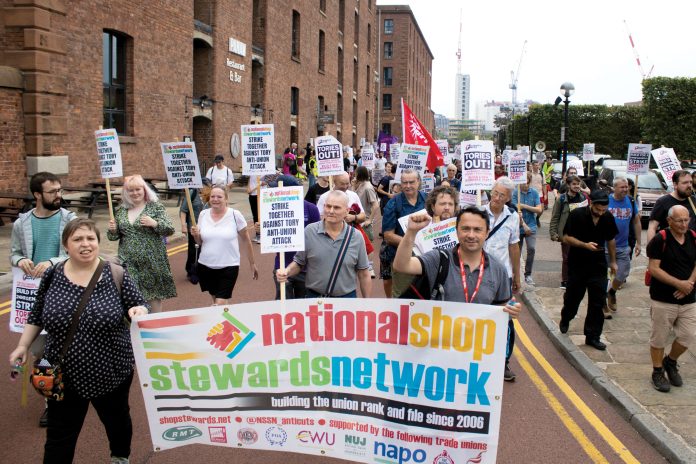Fight minimum service levels in the Civil Service
PCS Rep
Civil Service workers, particularly in the Home Office, are the latest to be hit by the government’s undemocratic minimum service levels legislation.
In an incredibly out-of-touch statement, former Home Secretary Suella Braverman, before being fired by Sunak, said “We must never allow strike action to compromise our border security or cause significant disruption to passengers or goods at our borders”. As someone who has worked for Border Force, at car ports and airports, Braverman’s statement astonished me!
Border Force teams are already understaffed and rely on relief provided by civil servants from HMRC’s Surge and Rapid Response Teams (SRRT), on days when there is no industrial action. A call for help is issued every Easter, summer and Christmas period. In similar circumstances to those faced by the NHS, the employer does not recruit and retain enough staff to adequately run the service to the level it will expect the unions to do so on strike days!
Emphasising its contempt for the rights of working people, and perhaps even to punish workers for taking five weeks of strike action earlier this year, the government has also targeted areas of the Passport Office, without any consultation. This in spite of the Act, passed in July, stipulating a required consultation period for each affected sector.
These attacks are a reminder that we need fighting, member-led unions and not least in the Civil Service. Unions not afraid to strike while the iron is hot and while momentum is on our side, to fight to the end. In the case of the largest Civil Service union, the PCS leadership, dominated by the Left Unity grouping of general secretary Mark Serwotka, is happy to talk tough while at the same time, and in practice, having recently wound down action while members were willing to fight on.
We need action, not words! That is why I am supporting and campaigning for the Broad Left Network (BLN) candidate Marion Lloyd and the incumbent John Maloney during the PCS elections for General Secretary and Assistant General Secretary.
Resist Tory attempts to stop education workers striking back
NEU rep
“I am asking the teaching unions to engage with us and agree to put children and young people’s education first – and above and beyond any dispute,” was the statement of Tory education secretary, Gillian Keegan, in October.
But Keegan has made it clear that the government will introduce minimum service levels (MSLs) during any future strike action in schools and colleges, should a voluntary agreement with education unions not be reached. However, there cannot be an agreement by the unions over legislation that removes the basic right of its members.
In schools and colleges, if MSLs were imposed it could mean that classes of high-needs students, children of ‘key workers’, and students on free school meals, would continue to be taught during an industrial dispute. Support staff, amongst the lowest-paid workers in education, would be prevented from taking strike action in order to help staff these classes.
The Tory government claims that MSL agreements are a way of guaranteeing the rights of students in schools and colleges. But it is the unions who put children first by fighting for fully funded schools and well-paid staff, not the Tories with their funding cuts. The MSL legislation is the Tories’ backhanded way of limiting the effectiveness of fighting trade unions and of strike action.
Any attempts to impose MSLs on school strikes must be resisted. Socialist Party member Sheila Caffrey is standing as a candidate in the election for Vice-President of the National Education Union (NEU). “Our union should call on all employers – especially Labour-led authorities – to refuse to comply with this anti-union legislation. I am supporting the lobby of the TUC Special Congress on Saturday 9 December, called by the National Shop Stewards Network. If ever there was a time for the TUC to act, uniting all trade unions in the fight to defend workers’ rights, it is now. Education workers cannot afford to lose the right to strike. Only trade union action can defend education workers against excessive workload and cuts in education funding.”







